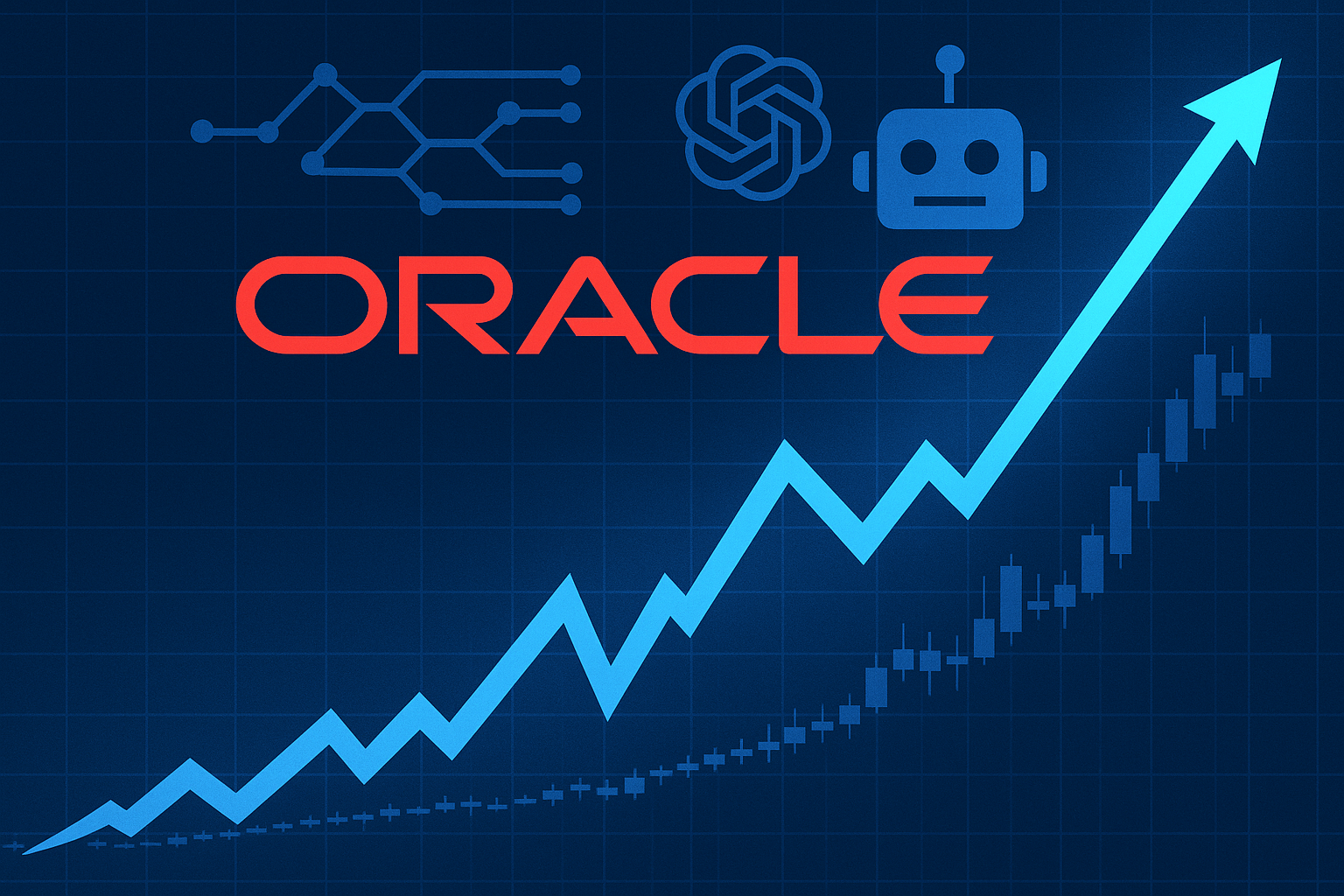Oracle’s surge highlights OpenAI’s expanding market influence

Oracle’s historic stock surge this week underscored the central role OpenAI continues to play in global technology markets.
The software giant briefly touched a $930 billion market capitalization after reporting strong quarterly earnings boosted by a multibillion-dollar cloud deal with the artificial intelligence startup.
However, concerns over Oracle’s reliance on a single customer soon triggered a sharp reversal in its shares.
OpenAI at the center of market gains
In its earnings report, Oracle disclosed four multibillion-dollar contracts signed during the quarter, including a large-scale agreement with OpenAI.
The deal, tied to the buildout of 4.5 gigawatts of US data center capacity, highlighted the AI company’s aggressive investment in computing infrastructure.
Investors also learned that OpenAI has committed $300 billion over five years, starting in 2027, to cloud spending — much of it with Oracle.
This revelation added clarity to Oracle’s June filing with the SEC, which referenced a $30 billion cloud contract with an unnamed customer.
Following confirmation, analysts pointed to OpenAI as the driver of the surge in Oracle’s backlog, which jumped 359% year over year to $455 billion.
The enthusiasm reflects a broader trend. Since the release of ChatGPT in late 2022, OpenAI has been a major catalyst for stock gains across tech.
Oracle joins Microsoft, Nvidia, and Broadcom in benefiting from the AI company’s spending, with those four companies alone adding more than $4.5 trillion in market capitalization.
Rising concerns over customer concentration
Despite Oracle’s brief rally — the stock climbed 36% on Wednesday, its largest gain since 1992 — the momentum quickly faded.
Shares fell more than 6% on Thursday and another 5% Friday as analysts cautioned against overexuberance.
Gil Luria of D.A. Davidson said the concentration of Oracle’s backlog with OpenAI “significantly reduces” investor enthusiasm, particularly if the vast majority of performance obligations stem from a single client.
While Luria recommended holding Oracle shares, he pointed to the risks of such heavy reliance on one customer.
Skepticism also extends to Oracle’s positioning in the cloud sector.
Despite recent wins, the company continues to trail hyperscale leaders Amazon, Microsoft, and Google.
Byron Deeter of Bessemer Venture Partners described Oracle as a “B-level hyperscaler,” arguing that its limited presence in AI software and chips leaves it at a competitive disadvantage.
OpenAI’s financial commitments and restructuring
OpenAI’s growing cloud spending is only part of its broader expansion.
The company has also committed to projects with other providers, including Google and CoreWeave, and plans to allocate $19 billion to Stargate, a US AI infrastructure initiative backed by Oracle and SoftBank.
Separately, SoftBank is leading a $40 billion investment in OpenAI.
At the same time, OpenAI continues to operate at a loss, though its revenue growth is accelerating rapidly.
After surpassing $10 billion in annual recurring revenue in June, the company projects that figure could reach $125 billion by 2029.
To secure its financing commitments, OpenAI is transitioning from its current nonprofit structure to a public benefit corporation by year-end.
Its nonprofit parent will retain oversight and hold an equity stake exceeding $100 billion once the restructuring is complete.
Outlook
For Oracle, the OpenAI partnership represents a breakthrough in cloud growth, putting the company within reach of the trillion-dollar market cap club.
Yet, the heavy reliance on a single, cash-burning startup raises questions about sustainability.
As OpenAI pursues unprecedented levels of investment and restructuring, its influence on Oracle — and on the broader tech market — remains both a powerful driver and a potential source of volatility.
The post Oracle’s surge highlights OpenAI’s expanding market influence appeared first on Invezz




